第92章
Again Aylmer applied himself to his labors. She could hear hisvoice in the distant furnace-room, giving directions to Aminadab,whose harsh, uncouth, mis-shapen tones were audible in response,more like the grunt or growl of a brute than human speech. After hoursof absence, Aylmer reappeared, and proposed that she should nowexamine his cabinet of chemical products, and natural treasures of theearth. Among the former he showed her a small vial, in which, heremarked, was contained a gentle yet most powerful fragrance,capable of impregnating all the breezes that blow across a kingdom.
They were of inestimable value, the contents of that little vial; and,as he said so, he threw some of the perfume into the air, and filledthe room with piercing and invigorating delight.
"And what is this?" asked Georgiana, pointing to a small crystalglobe, containing a gold-colored liquid. "It is so beautiful to theeye, that I could imagine it the Elixir of Life.""In one sense it is," replied Aylmer, "or rather the Elixir ofImmortality. It is the most precious poison that ever was concocted inthis world. By its aid, I could apportion the life-time of anymortal at whom you might point your finger. The strength of the dosewould determine whether he were to linger out years, or drop dead inthe midst of a breath. No king, on his guarded throne, could keephis life, if I, in my private station, should deem that the welfare ofmillions justified me in depriving him of it.""Why do you keep such a terrific drug?" inquired Georgiana inhorror.
"Do not mistrust me, dearest!" said her husband, smiling; "itsvirtuous potency is yet greater than its harmful one. But, see! hereis a powerful cosmetic. With a few drops of this, in a vase ofwater, freckles may be washed away as easily as the hands arecleansed. A stronger infusion would take the blood out of the cheek,and leave the rosiest beauty a pale ghost.""Is it with this lotion that you intend to bathe my cheek?" askedGeorgiana, anxiously.
"Oh, no!" hastily replied her husband- "this is merely superficial.
Your case demands a remedy that shall go deeper."In his interviews with Georgiana, Aylmer generally made minuteinquiries as to her sensations, and whether the confinement of therooms, and the temperature of the atmosphere, agreed with her. Thesequestions had such a particular drift, that Georgiana began toconjecture that she was already subjected to certain physicalinfluences, either breathed in with the fragrant air, or taken withher food. She fancied, likewise- but it might be altogether fancy-that there was a stirring up of her system: a strange, indefinitesensation creeping through her veins, and tingling, half-painfully,half-pleasurably, at her heart. Still, whenever she dared to look intothe mirror, there she beheld herself, pale as a white rose, and withthe crimson birthmark stamped upon her cheek. Not even Aylmer nowhated it so much as she.
To dispel the tedium of the hours which her husband found itnecessary to devote to the processes of combination and analysis,Georgiana turned over the volumes of his scientific library. In manydark old tomes, she met with chapters full of romance and poetry. Theywere the works of the philosophers of the middle ages, such asAlbertus Magnus, Cornelius Agrippa, Paracelsus, and the famous friarwho created the prophetic Brazen Head. All these antique naturalistsstood in advance of their centuries, yet were imbued with some oftheir credulity, and therefore were believed, and perhaps imaginedthemselves, to have acquired from the investigation of nature apower above nature, and from physics a sway over the spiritualworld. Hardly less curious and imaginative were the early volumes ofthe Transactions of the Royal Society, in which the members, knowinglittle of the limits of natural possibility, were continuallyrecording wonders, or proposing methods whereby wonders might bewrought.
But, to Georgiana, the most engrossing volume was a large foliofrom her husband's own hand, in which he had recorded every experimentof his scientific career, with its original aim, the methods adoptedfor its development, and its final success or failure, with thecircumstances to which either event was attributable. The book, intruth, was both the history and emblem of his ardent, ambitious,imaginative, yet practical and laborious, life. He handled physicaldetails, as if there were nothing beyond them; yet spiritualizedthem all, and redeemed himself from materialism, by his strong andeager aspiration towards the infinite. In his grasp, the veriestclod of earth assumed a soul. Georgiana, as she read, reverencedAylmer, and loved him more profoundly than ever, but with a lessentire dependence on his judgment than heretofore. Much as he hadaccomplished, she could not but observe that his most splendidsuccesses were almost invariably failures, if compared with theideal at which he aimed. His brightest diamonds were the merestpebbles, and felt to be so by himself, in comparison with theinestimable gems which lay hidden beyond his reach. The volume, richwith achievements that had won renown for its author, was yet asmelancholy a record as ever mortal hand had penned. It was the sadconfession, and continual exemplification, of the short-comings of thecomposite man- the spirit burthened with clay and working in matter;and of the despair that assails the higher nature, at finding itselfso miserably thwarted by the earthly part. Perhaps every man ofgenius, in whatever sphere, might recognize the image of his ownexperience in Aylmer's journal.
So deeply did these reflections affect Georgiana, that she laid herface upon the open volume, and burst into tears. In this situation shewas found by her husband.